Earth's Place in the Universe

Educators and Parents, Sign Up for The Cheat Sheet
Weekly updates to help you use Science News Explores in the learning environment
Thank you for signing up!
There was a problem signing you up.
-
 Space
SpaceWild art? No, it’s a radio image of the heart of our Milky Way
Eyelash-like radio filaments accent the brightest feature in this image — a supermassive black hole.
-
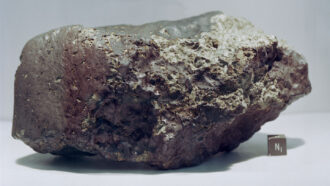 Planets
PlanetsNo, organic molecules alone don’t point to life on Mars
These carbon-based molecules, found in a meteorite, may reflect merely a mixing of water and minerals on the Red Planet over billions of years.
By Nikk Ogasa -
 Physics
PhysicsExplainer: Gravity and microgravity
The force of gravity holds us on the ground, keeps planets in orbit and extends throughout space. A very weak gravitational pull is called microgravity.
By Trisha Muro and Bethany Brookshire -
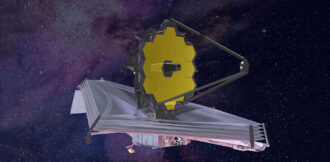 Space
SpaceThe long-awaited James Webb Space Telescope has a big to-do list
The James Webb Space Telescope has been in the works for so long that new fields of science have emerged for it to study.
-
 Space
SpaceExplainer: Telescopes see light — and sometimes ancient history
Different kinds of telescopes on Earth and in space help us to see all wavelengths of light. Some can even peer billions of years back in time.
By Trisha Muro -
 Space
SpaceScientists Say: Solar wind
This is a powerful gust of charged particles that flows out from the sun through the solar system.
-
 Space
SpaceAstronomers may have found first known planet in another galaxy
The spiral-shaped Whirlpool galaxy may be home to the first planet spotted outside our own Milky Way galaxy.
-
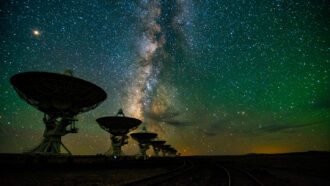 Space
SpaceLet’s learn about the hunt for alien life
Finding any extraterrestrials, from advanced alien civilizations to simple microbes, would be an unmatched discovery.
-
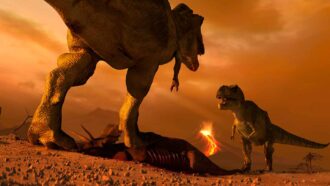 Animals
AnimalsExplainer: The age of dinosaurs
Take a trip back to the Mesozoic Era to explore how geologic events, ecosystems and evolution were connected during the so-called age of dinosaurs.
By Beth Geiger -
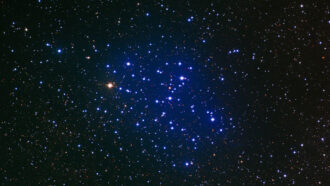 Space
SpaceExplainer: Calculating a star’s age
Scientists can figure out a star's mass or composition pretty easily. Determining how old that star is, however, is a lot harder.
By Lisa Grossman and Helen Thompson -
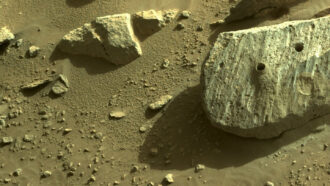 Planets
PlanetsNASA’s Perseverance rover grabbed its first Martian rocks
Two finger-sized pieces of stone drilled from a basalt rock are the first bits of Mars ready to be brought to Earth.
-
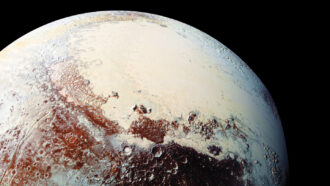 Planets
PlanetsPluto is no longer a planet — or is it?
In the 15 years since Pluto lost its status as a planet, some scientists continue to use whatever definition works best for them.